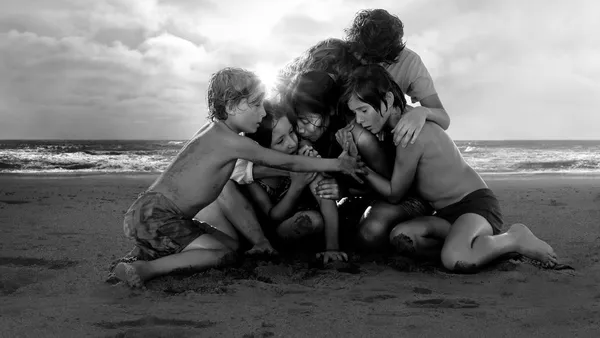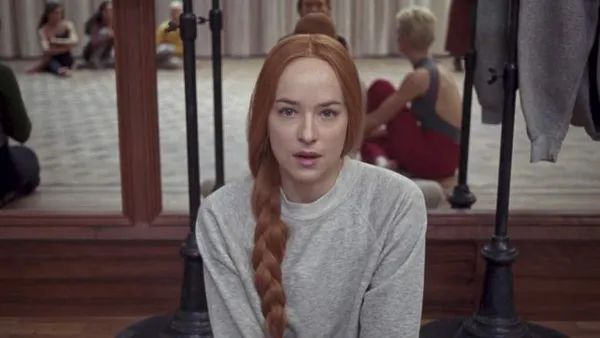 |
| First Man: 'Death is at every corner' Photo: Universal Pictures |
Venice has known feast and famine over the years, but the slim pickings of 2008, when only The Wrestler, The Hurt Locker and Rachel Getting Married saved the event from total oblivion, seem a long time ago now. Nevertheless, newcomers at the world’s oldest film festival should be warned that it’s not every year you get a new Coen brothers movie, or a Lanthimos, or a Cuarón, or all three in just two days.
The excitement began with the announcement of the festival’s opening film, First Man by Damien Chazelle, who opened here two years ago with his instant Oscar contender La La Land. Funnily, enough though a one-two like this is pretty hard to pull off, Chazelle was not quite received as a returning hero; the film has had positive reviews and tweets, but critics privately grumbled among themselves, forming a sub rosa consensus that deemed it “boring”.
It’s easy to see why, but First Man is not the triumphalist adventure story that many were expecting. It’s a dark story of one man’s drive, and there’s an undertow of morbidity that’s there from the start, when test pilot Neil Armstrong loses his infant daughter to a particularly virulent brain cancer. Death is at every corner in First Man, and Chazelle never indulges the fancy space-age rhetoric that would ultimately put Armstrong on the Moon. This is still the Sixties, and the vessels going out into the unknown are creaky steel tubs, and the body count is so high that, as 1969 looms, much like the US tax-payer, even the viewer will hope against hope that the Apollo XI mission will be aborted.
Clearly it isn’t, but the surprise is in its handling: when Armstrong finally makes contact with the Moon’s surface, his “small step for a man” is far from the great production number that many were expecting. Instead, like Kubrick’s 2001 – a very subtle influence – it is a rumination what lies beyond our world, but, as this film shows, even 200,000 miles from home, a man won’t escape his demons.
Yorgos Lanthimos’s The Favourite switched things up immediately, a filthy and insanely entertaining period romp from the Greek pioneer of the strange. Nowhere near so wacky as his previous films, The Favourite nevertheless retains their rich seams of venality, as down-at-heel baroness Abigail (Emma Stone), arrives, covered in shit, at the Court of Queen Anne (Olivia Coleman). Abigail ingratiates herself with the Duchess Of Marlborough (Rachel Weisz), the Queen’s closest confidante, but soon, having worked out the hierarchy of court politics, the baroness sets out to upend the old ways and curry favour with the queen herself.
The chess game of wit and double-cross that follows is a scabrous delight, with a delicious stream of olde-English vulgarities (the C-word is especially relished). All are terrific, especially Cleman as the dotty queen with pet rabbits named after her 17 stillborn children, but Weisz is perhaps the standout as the conniving, velveted-steel duchess, who doesn’t cede her power lightly.
 |
| Roma Photo: Courtesy of San Sebastian Film Festival |
Depending which way round you saw them, Alphonso Cuarón’s Roma followed almost immediately, offering a completely different and altogether more soothing watch. Based on Cuarón’s own life experience, it tells the story of Cleo (Yalitza Aparicio), the maid for a well-to-do Mexican family in the 1970s. As a narrative, it is slight – Cleo meets a man, and falls pregnant just as he’s above to leave her forever – but Roma is much richer in background detail, rendered in exquisite black and white. Maid movies are a subgenre in themselves, mind, and while Cuarón’s film is certainly heartfelt, beautiful, and clearly the work of a master, its sentiments have been expressed just as clearly by first-timers – like Anthony Chen in his 2013 debut Ilo Ilo – and without Netflix bucks to draw on.
The Coens are familiar faces on the Lido, and it seems to be where they park their in-between movies, like Burn After Reading and Intolerable Cruelty. Another Netflix production, The Ballad Of Buster Scruggs is a deceptively well-crafted curio that will definitely age well, although, for now, it will be viewed as a grab-bag of unfinished thoughts and sketches. Why anyone would think that is probably down to the unusual pacing of the film. Made up of six vignettes from a western story book that flicks open on the screen, it starts with an uproarious opener, in which Tim Blake Nelson plays singing outlaw Buster Scruggs, whose devil-may-care attitude costs him dearly when a stranger comes to town. If you’re expecting a comedy, though, there isn’t exactly a great deal more where that came from; instead The Ballad… explores the violent ironies of life in the Old West in a string of beautifully scripted short films that seem to idle towards nowhere but then suddenly spring shut like a steel trap. The brothers’ writing has seldom been better.
Something that could not be said to spring shut is Mike Leigh’s sprawling Peterloo, which gives an account of the events leading up to a political demonstration that took place in Manchester, England, in the autumn of 1819, when armed troops attacked a civilian crowd of over 60,000 people who had gathered in St Peter’s Field to call for parliamentary reform. Leigh’s last film, Mr Turner, was a period piece too, but this one feels somehow richer, with a wonderfully watchable ensemble cast who play the parts of the haves and have-nots in the north and south of class-divided Britain. In the wake of Brexit, its relevance is obvious, but Leigh doesn’t hit us on the nose. Instead, he spells out a human tragedy in layman’s terms, and while there are some overly long, impassioned speeches for sure, and the staging of Peterloo itself doesn’t exactly bring out Leigh’s inner Tony Scott, it’s a well thought-out, much-needed history lesson.
 |
| Suspiria: 'Clear your mind of comparisons and this is a bold, fascinating film experience' Photo: Courtesy of Venice Film Festival |
Venice wouldn’t be Venice without a scandal, and this year the enfant terrible was Luca Guadagnino, the homegrown auteur the Italians love to hate. Compared to A Bigger Splash, which was seen off in Venice with boos, Guadagnino certainly fared better on his first time back after the worldwide success of Call Me By Your Name. But Suspiria was divisive, and always will be, simply because of what it is (and isn’t). What it is is a sort of remake of Suspiria, the 1977 gorefest by Italian horror legend Dario Argento, and what it isn’t is anything like the 1977 gorefest by Italian horror legend Dario Argento: Guadagnino’s film is entirely its own thing, shifting the location from rural Freiburg to urban Berlin, where Tilda Swinton’s Madame Blanc runs a creepy modern dance company.
Clear your mind of comparisons and this is a bold, fascinating film experience, way too long but utterly bewitching – in more ways that one. The stately Eurohorror froideur of Harry Kümel’s 1971 Daughters Of Darkness is a good visual reference, and Dakota Johnson has a great physical presence that suggests some good did at least come from the Fifty Shades saga. What it actually is – black comedy/feminist statement/pagan propaganda – will be endlessly debated, but, with any luck, many of its inky and unsettling mysteries will never be fully known.
Read our report on The Sisters Brothers, Sunset, Non-Fiction, The Mountain, Dragged Across Concrete, Charlie Says and Vox Lux.
























